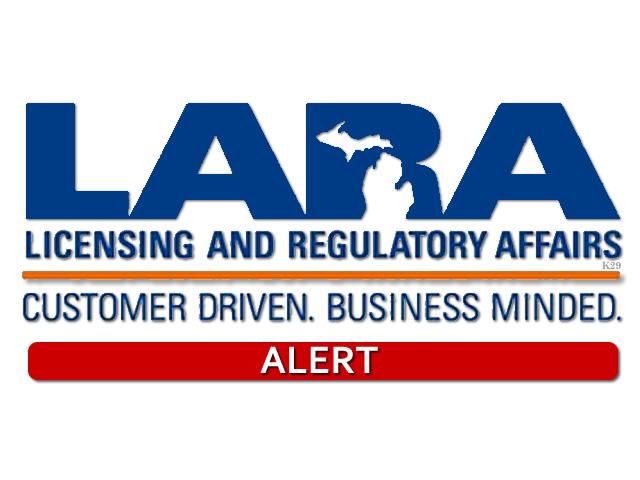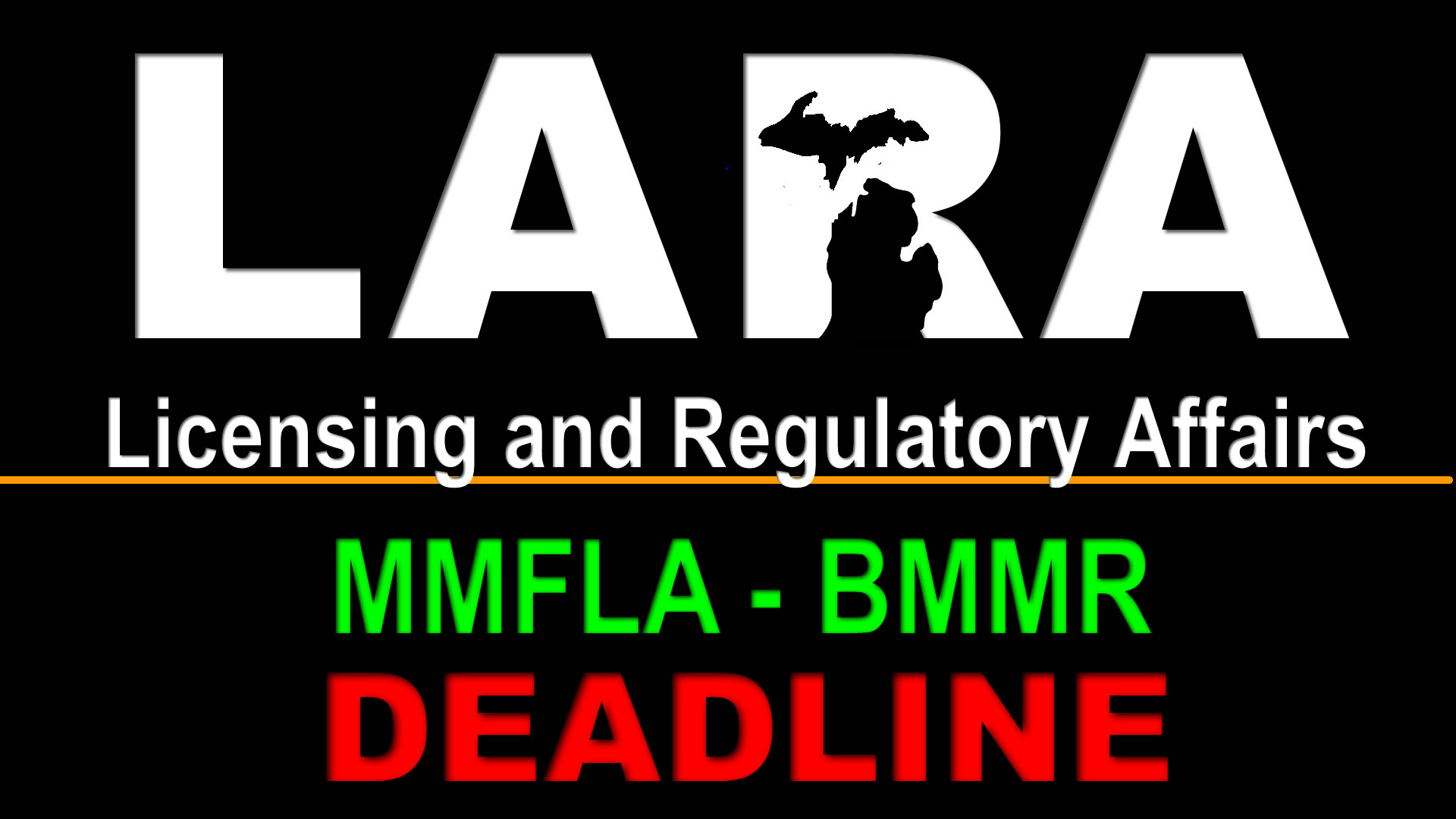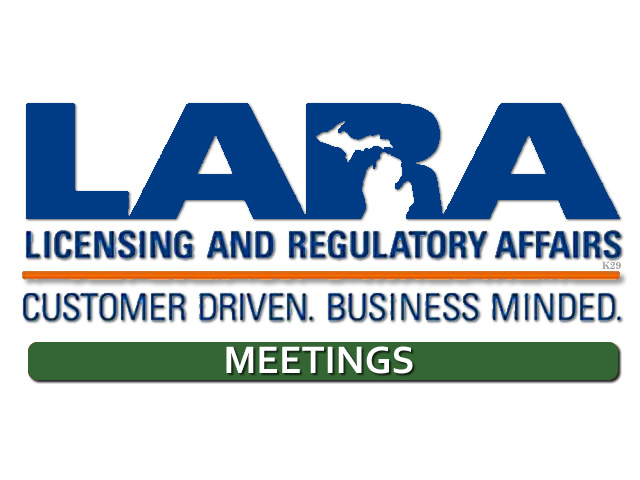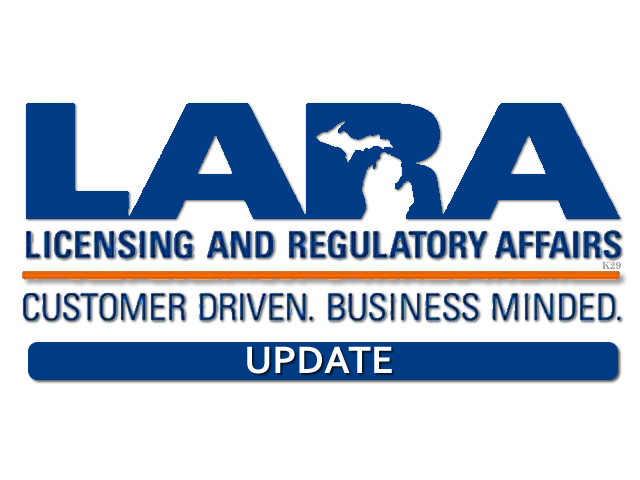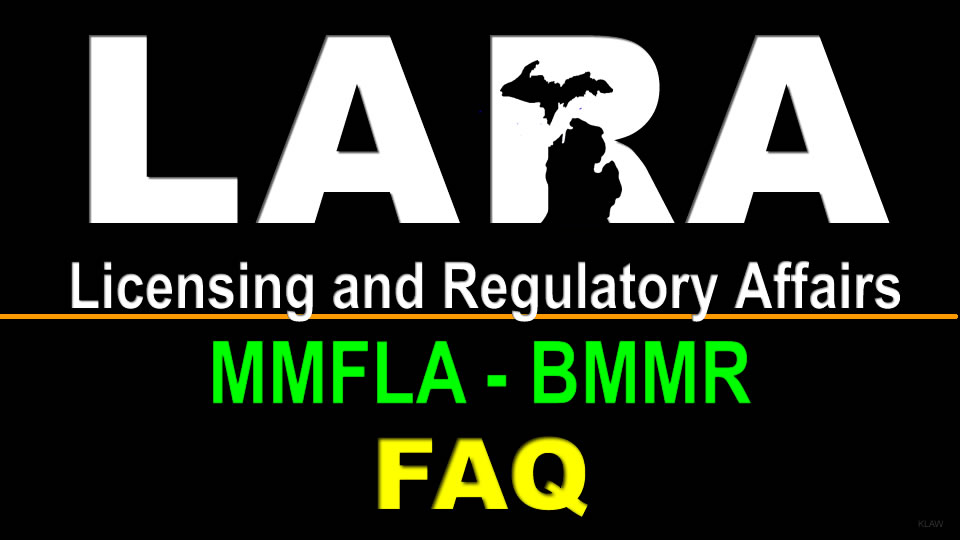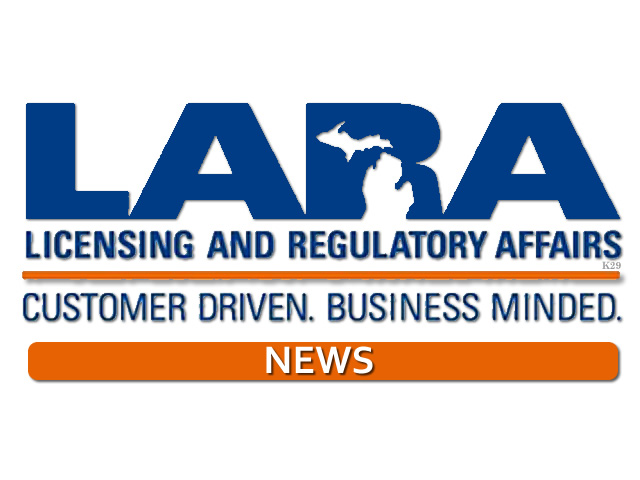
Sep 11, 2018 | Blog, LARA-MMFLA Info
LARA-9-11-2018 Michigan Extends Deadline for Certain Medical Marihuana License Applicants
September 11, 2018 – The Dept. of Licensing and Regulatory Affairs (LARA) has issued new emergency administrative rules to continue the implementation of the Medical Marihuana Facilities Licensing Act (MMFLA).
Gov. Rick Snyder today signed the new rules to help ensure the continued protection of medical marihuana patients.
Effective today, certain proposed medical marihuana facilities that would otherwise require a state operating license under the MMFLA may continue to operate with local approval until December 15, 2018 without impacting the applicant’s eligibility for licensure.
Applicants who had been operating with temporary authorization fall into one of four different categories and the new emergency rules effect each of them differently:
- Applicants who applied on or before February 15, 2018 and submitted the marihuana facility license application (i.e. Step 2) after June 15, 2018 or have not yet submitted a Step 2 application.
Any continued operation of a medical marihuana facility after September 15, 2018 will be considered an impediment to licensure. The department intends to issue cease and desist letters and will refer any unlicensed activity to law enforcement.
- Applicants who applied on or before February 15, 2018 and submitted the marihuana facility license application (i.e. Step 2) on or before June 15, 2018.
The applicant’s operation with local authorization for temporary operation (Attestation E) will not be considered an impediment to licensure. If a facility has not been issued a license by the department by December 15, 2018, continued operation will be considered an impediment to licensure.
Charged with distracted driving or driving under the influence of marijuana or alcohol? Contact Komorn Law for a free case evaluation 800-656-3557.
- Applicants who were approved for licensure by the board prior to September 11, 2018 but have not been issued a license.
The applicant must pay the regulatory assessment within 10 business days. Continued operation after the 10-business day window may result in disciplinary action if the regulatory assessment has not been paid. Once the regulatory assessment has been paid, the applicant may continue to temporarily operate with local authorization until the department issues the license.
- Applicants who were issued a license prior to September 11, 2018.
The licensee may return the license in a manner to be determined by the department. Once the license has been returned, the applicant may continue to temporarily operate with local authorization until the department issues the license.
A provisioning center licensee may sell product that has not been tested in compliance with the act and emergency rules, provided the licensee obtains a signed written acknowledgement from the patient or caregiver consenting to the sale or transfer.
Any marihuana product obtained prior to the date of licensure may continue to be sold after the date of licensure, provided the licensee obtains a signed written acknowledgment from the patient or caregiver. Any marihuana product obtained after the date of licensure must be obtained from a licensed facility and must be tested in full compliance with the act and emergency rules.
Ultimately, licensure decisions will be made by the members of the Medical Marihuana Licensing Board (MMLB), who may choose to consider unlicensed activity as part of the licensing criteria when deliberating on the overall application. Until a license is received from the state, the operation of a proposed medical marihuana facility should be considered a business risk by the operator. Non-compliance will be grounds for disciplinary action and referral to law enforcement for unlicensed activity.
The September Emergency Rules can be found here
About Komorn Law
Komorn Law has represented numerous clients through the legal chaos of starting up a business in the Michigan Medical Marihuana Industry.
If you or someone you know is facing charges as a result of Medical Marijuana, DUI, Drugs, Forfeiture, Criminal Enterprise, etc. Please contact our office and ensure you’re defended by an experienced lawyer in the evolving laws.
Lead attorney Michael Komorn is recognized as an expert on the Michigan Medical Marihuana Act. He is the President of the Michigan Medical Marijuana Association (MMMA), a nonprofit patient advocacy group which advocates for the rights of medical marijuana patients and their caregivers.
Contact us for a free no-obligation case evaluation
800-656-3557.
Follow Komorn Law

Sep 8, 2018 | Blog, LARA-MMFLA Info
The Michigan Cannabis Business Licensing Deadline
September 15, 2018
The Medical Marihuana Licensing Board’s September 15th deadline for unlicensed provisioning centers to close is approaching fast.
Only about 16 licenses out of a reported 637 applications have been approved.
There are approximately over 200 provisioning centers operating temporarily under state emergency rules. Most will have to shut down on the deadline date.
“The implementation is insufficient,” says attorney Josh Colton of the Komorn Law firm. “Patients need safe access to their medicine. Extending the deadline from June to September was for this purpose. To all of a sudden shut this down is going to leave quite a few people scrambling.”
“Even though I think [MMLB] are doing everything they possibly can, even if they are successful in getting 20 more facilities licensed, it is simply not enough to take care of the patient base,” says Colton.
“I have many cannabis business clients looking for answers” said attorney Michael Komorn who has experience and is recognized as an expert in Michigan Medical Marijuana laws.

Aug 29, 2018 | Blog, LARA-MMFLA Info
DEPARTMENT OF LICENSING AND REGULATORY AFFAIRS (LARA)
BUREAU OF MEDICAL MARIHUANA REGULATION
MEDICAL MARIHUANA FACILITIES
NOTICE OF PUBLIC HEARING
Monday, September 17, 2018 @ 9:30 AM
Williams Building, 1st Floor, Auditorium
525 West Ottawa Street Lansing, MI
The Department of Licensing and Regulatory Affairs, Bureau of Medical Marihuana Regulation will hold a public hearing on Monday, September 17, 2018, at the Williams Building, 525 West Ottawa Street, Lansing, Michigan in the 1st Floor Auditorium at 9:30 A.M.
The hearing will be held to receive public comments on
the proposed Medical Marihuana Facilities rules.
The proposed Medical Marihuana Facilities rules (2017-042 LR) is a new rule set. The rule set provides for the implementation of a program to license medical marihuana facilities. The rule set implements, administers, and enforces appropriate standards for marihuana facilities and associated equipment and
establishes regulations ensuring the safety, security, and integrity of the operation of marihuana facilities.
These rules are promulgated by authority conferred on the Department of Licensing and Regulatory Affairs
by Section 206 of the Medical Marihuana Facilities Licensing Act (MMFLA), 2016 PA 281, as amended, MCL 333.27206.
These rules will take effect immediately upon filing with the Secretary of State.
The rules are published on the Office of Regulatory Reinvention’s website at www.michigan.gov/orr and in
the September 15, 2018, issue of the Michigan Register.
Public comments on the proposed rules may be
presented in person at the public hearing or submitted to the following address until 5:00 P.M. on Friday, September 21, 2018.
Copies of the proposed rules may also be obtained by electronic transmission at the following address:
Department of Licensing and Regulatory Affairs
Legal Section, Bureau of Medical Marihuana Regulation
P.O. Box 30205
Lansing, MI 48909
Phone: 517-284-8584
Fax: 517-284-8598
E-mail: LARA-BMMR-Legal@michigan.gov
Official Release From LARA.
Map
I would…Call the day before to confirm this meeting is still on. The phone number provided by LARA above.
About Komorn Law
Komorn Law has represented numerous clients through the legal chaos of starting up a business in the Michigan Medical Marihuana Industry.
If you or someone you know is facing charges as a result of Medical Marijuana, DUI, Drugs, Forfeiture, Criminal Enterprise, etc. Please contact our office and ensure you’re defended by an experienced lawyer in the evolving laws.
Lead attorney Michael Komorn is recognized as an expert on the Michigan Medical Marihuana Act. He is the President of the Michigan Medical Marijuana Association (MMMA), a nonprofit patient advocacy group which advocates for the rights of medical marijuana patients and their caregivers.
Contact us for a free no-obligation case evaluation
800-656-3557.
Follow Komorn Law

Aug 2, 2018 | Blog, LARA-MMFLA Info, Michigan Medical Marhuana Regulation
LARA-MMFLA Update-Per Rule 40, Section 2(a) of the Emergency Rules, a licensed provisioning center may sell or transfer marihuana product to a visiting qualifying patient if all of the following are met:
Update-The licensee verifies that the visiting qualifying patient has a valid unexpired medical marihuana registry card or its equivalent issued in another state, district, territory, commonwealth, or insular possession of the United States that allows the medical use of marihuana.
The licensee confirms that the visiting qualifying patient presented his or her valid driver license or government-issued identification card that bears a photographic image of the visiting qualifying patient.
All provisioning centers within the State of Michigan that are currently operating temporarily with local approval are advised that no patient identification (ID) cards are being issued by the state of Ohio’s Medical Marijuana Control Program (MMCP) at this time. LARA-BMMR has been informed that the State of Ohio Board of Pharmacy will not be issuing valid Ohio patient registry cards until September 2018. Any patient ID card presented from the state of Ohio to a provisioning center in Michigan before September 2018 is considered invalid and constitutes a violation of Rule 40 Section 2(a) of the MMFLA Emergency Rules.
Based on the available data, the following states are currently issuing medical marihuana cards
or registration certifications to patients:
• Alaska
• Arizona
• California
• Colorado
• Connecticut
• Delaware
• Florida
• Hawaii
• Illinois
• Maine
• Maryland
• Massachusetts
• Minnesota
• Montana
• Nevada
• New Hampshire
• New Jersey
• New Mexico
• New York
• Ohio#
• Oregon
• Pennsylvania
• Rhode Island
• Vermont
• Washington
• Washington DC
• West Virginia*
# Has a medical marijuana program, but will not issue patient ID cards until September 2018.
* Has a medical marijuana program, but will not issue patient ID cards until July 1, 2019.
View official LARA release HERE
LARA Site Document

Aug 1, 2018 | Blog, LARA-MMFLA Info, Michigan Medical Marhuana Regulation
Marihuana Grower License
In Michigan a Marihuana Grower is licensed to cultivate, dry, trim, or cure and package marihuana for sale to a processor or provisioning center. A Grower cannot be a registered primary caregiver.
The 3 levels of a Growers’ license is based on the amount of marihuana product grown.
- Class A – 500 plants
- Class B – 1,000 plants
- Class C – 1,500 plants
Marihuana Grower License Requirements
- Applicant, and each investor in the grower, must not have an interest in a secure transporter or safety compliance facility.
- Must employ an individual with a minimum of 2 years’ experience as a caregiver (This restriction ends after December 31, 2021)
- The licensee must not be an active caregiver and must not employ an active caregiver.
- Cultivation must occur in industrial or agricultural zoned areas, or in unzoned areas that meet local ordinance requirements.
How is your plant count determined as it affects your growing limits as a Class A, B, C Grower Licenses?
The MMFLA defines a plant as any living organism that produces its own food through photosynthesis and has observable root formation or is in growth material.
A licensee’s plant limit is based on the type of license issued. Any plant that meets this definition is counted toward the licensee’s plant count.
Can I hold a CPL license and a medical marihuana facility license?
There are no restrictions in the MMFLA that prevent a CPL holder from obtaining a medical marihuana facility license.

Jul 24, 2018 | Blog, LARA-MMFLA Info, Michigan Medical Marhuana Regulation
The hazards that may be present in the marihuana industry highlight the need for careful attention to safety and health at all facets of the businesses.
Not all items listed in this guide may be present at a medical marijuana facility. Conversely, there may be additional ones not listed on this guide that may be present. This guide is intended to provide a starting point for the identification and control of occupational safety and health hazards in this evolving industry.
Identifying and controlling workplace risk begins with an effective Safety and Health Management System.
Some Potential Safety and Health Hazards
- Carbon dioxide used to enrich growing environment.
- Chemicals used as plant nutrients.
- Chemicals used to clean and sanitize equipment.
- Chemicals used to extract essential oils from plant materials.
- Dusts from growing or processing environments.
- Noise from growing and processing equipment, i.e. generators or processing machinery.
- Air contaminants (e.g., carbon dioxide)
- Respiratory protection
- Fire suppression systems
- Labeling
- Employee training
Read the entire release here
Komorn Law has represented numerous clients through the legal chaos of starting up a business in the Michigan Medical Marihuana Industry.
Contact Us For More Information.
800-656-3557
